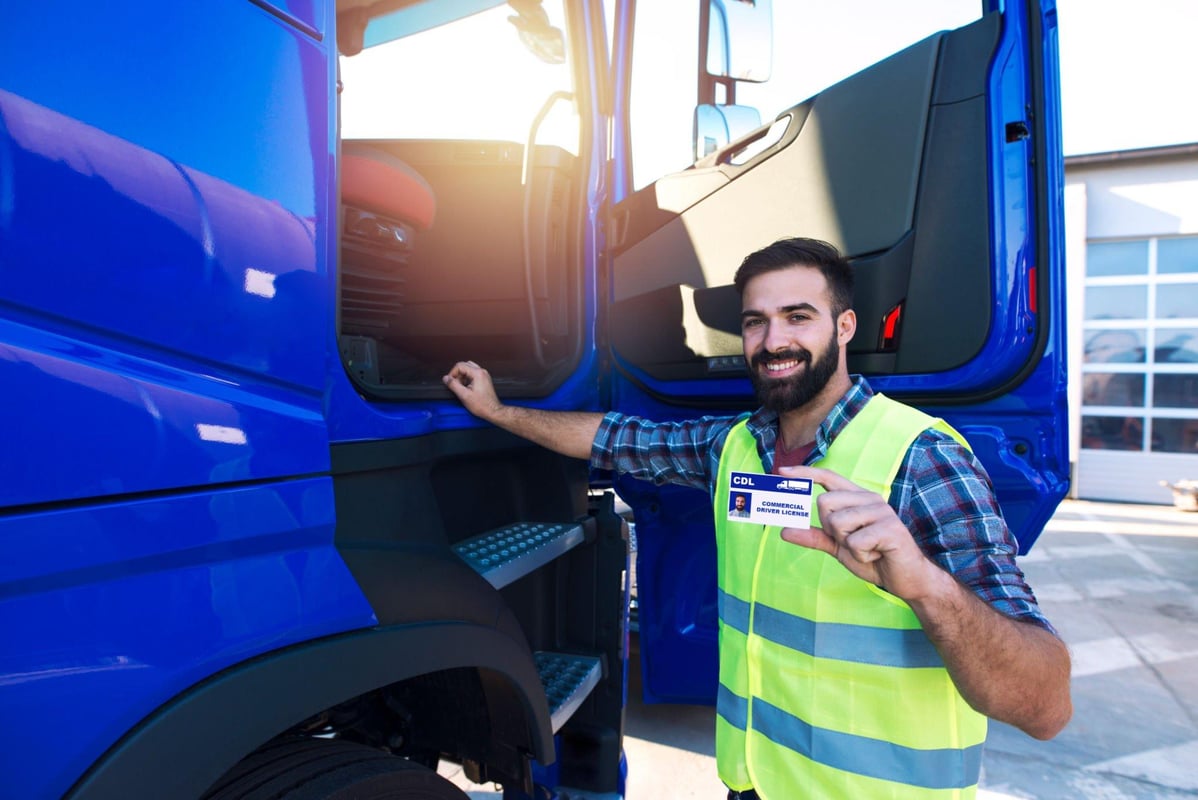
Financial aid (may be available)

Financial aid (may be available)

Financial aid (may be available)

No cost info
$3,600 total
No cost info
No cost info
In the thriving city of St. Louis, there's a demand for skilled and certified commercial drivers. For those seeking a fulfilling career on the open road, a CDL-B license can be your ticket to a world of opportunities. This blog post will guide you through what a CDL-B is, the training requirements, selecting the right class, and what to expect from day-to-day classes. We will also delve into the certification process, finding relevant jobs, and what classes you can take post-certification.

A Commercial Driver's License (CDL) B is a classification of a driver's license that permits the holder to operate commercial vehicles such as buses, dump trucks, delivery trucks, tow trucks, and garbage trucks. Unlike the CDL-A, which allows the operation of any combination of vehicles, the CDL-B is specific to single vehicles weighing 26,001 pounds or more or towing a vehicle that does not exceed 10,000 pounds.
Before you can obtain a CDL-B license, there are certain training requirements you must meet:
Age Requirements: You must be at least 18 years old to drive within state lines (intrastate) and at least 21 years old to drive across state lines (interstate), carry hazardous materials, or drive a school bus.
Driver’s Record: You must have a clean driving record. Any history of reckless driving, DUI, or vehicular manslaughter could disqualify you.
Physical Health: You must pass a Department of Transportation (DOT) physical examination every two years. This is to ensure you are physically capable of driving a commercial vehicle.
CDL Learner’s Permit: Before you can start your CDL-B training, you must first obtain your CDL learner's permit by passing a written test.
When choosing a CDL-B class, it’s important to consider the following:
Comprehensive Curriculum: The class should cover all the basics of operating a CDL-B vehicle, including driving techniques, safety procedures, and vehicle maintenance.
Experienced Instructors: Instructors should have considerable experience in the field and be able to provide practical insights.
Hands-on Training: Look for classes that offer plenty of on-the-road training. The more practice you get, the more comfortable you’ll be when it’s time to take your driving test.
CDL-B classes typically consist of both classroom instruction and practical driving experience. In the classroom, you'll learn about vehicle mechanics, safety procedures, and traffic laws. On the road, you'll learn how to operate a commercial vehicle, including how to navigate through traffic, park, and reverse.
Once you've completed your training, you'll need to pass both a written and a skills test to receive your CDL-B certification. The written test will cover what you learned in the classroom, while the skills test will evaluate your driving abilities, including vehicle inspection, basic controls, and on-road driving.
Once certified, you'll be eligible to apply for CDL-B driver jobs. These can be found on job boards, company websites, or through networking. Some vocational training providers also offer job placement assistance.
After obtaining your CDL-B, you might consider additional certifications to broaden your job prospects:
Hazardous Materials (HazMat) Endorsement: This allows you to transport hazardous materials.
School Bus Endorsement: This qualifies you to drive a school bus.
Passenger Endorsement: This certifies you to drive a vehicle designed to carry 16 or more passengers, including the driver.
Being aware of industry trends is crucial for anyone pursuing a career in commercial driving. As technology continues to evolve, areas like electric trucks and autonomous vehicles are becoming more prevalent.
Joining professional associations can offer numerous benefits, including networking opportunities, industry news and updates, professional development resources, and more. Some notable organizations include the American Trucking Associations and the Owner-Operator Independent Drivers Association.
Continuing education is a great way to stay updated on changes in the industry and enhance your skills. This can be done through workshops, seminars, online courses, and additional certifications.
With experience and further training, a CDL-B holder can advance to positions such as a trainer, dispatcher, or even a manager. Some may also choose to become owner-operators, owning and operating their own trucks.
Obtaining a CDL-B license can open up numerous job opportunities in St. Louis and beyond. It requires dedication, rigorous training, and a commitment to safety. But with the right training program, you can embark on a rewarding career in commercial driving.
To get started on your journey, take a look at this guide on how to become a truck driver in Missouri. For those interested in expanding their vocational skills, you may also consider programs in areas like HVAC or healthcare. Remember, the journey to a fulfilling career starts with the right training.
Dreambound has written dozens of in-depth guides on how to get started in this field, with information specific to your city. If you're located somewhere else or thinking about moving, check out some other guides we've written:
Thinking about making a career switch? Dreambound has written thorough guides to help you understand different options available to you.
Dreambound's platform allows prospective students to find the right educational program for them through searching, filtering, and connecting with our extensive selection of career & technical education partners.
Dreambound has over 70 programs across healthcare, technology, business, and industrial trades. This includes programs such as Medical Billing, Cybersecurity, and welding.
Some of our schools offer financial aid for those who qualify. Many others offer payment plans, where you can pay the cost of class over time.
Yes, Dreambound offers many online programs. On Dreambound's search, you can filter by online, in-person, and hybrid (part online, part in-person).
Dreambound is completely free for you to use! We are supported by schools and organizations who pay to advertise on our website, so we can offer all of our career resources for free.